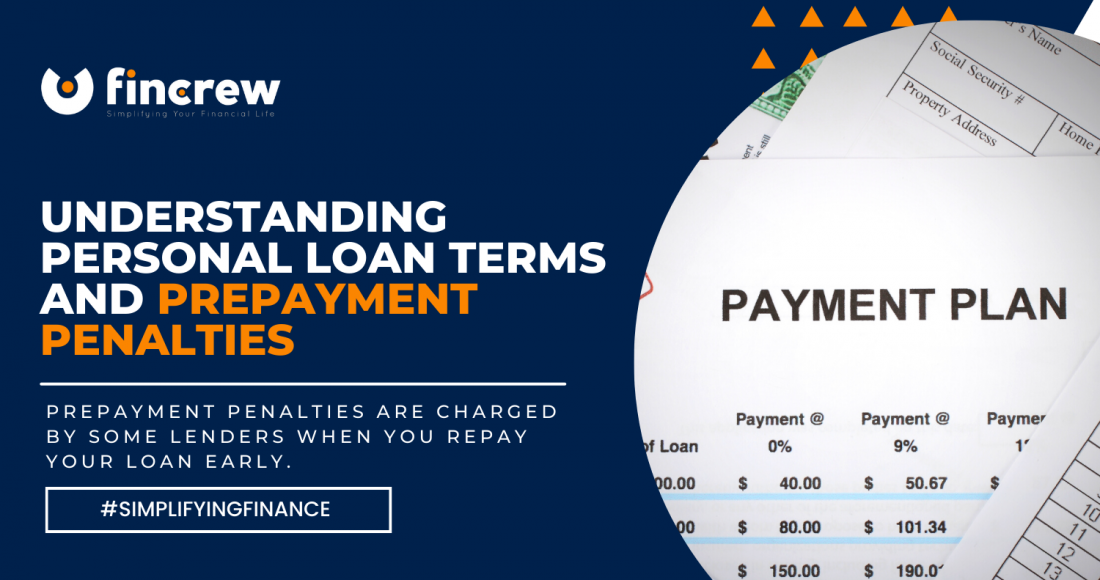Getting a personal loan requires considering many details, from interest rates and credit score requirements. An extra fee you don’t want to pay is a prepayment penalty. Here, we’ll look at a prepayment penalty, why lenders charge it, and how to avoid it entirely.

What Is a Prepayment Penalty?
Prepayment penalties (also known as early payoff fees) are charged by some lenders when you repay your loan early. In addition, there is a specific loan term for each personal loan, which represents the length of time you have to pay off the loan balance (plus interest) you borrowed. Repayment terms can typically range between six months and seven years, but lenders have their preferences regarding repayment, which can vary by a few months or a few years. Suppose you got the approval for a personal loan with a prepayment penalty, and the lender states that the repayment term is four years (48 months); you will need to pay fixed, equal payments with interest for 48 months to repay what you borrowed. You will get a penalty if you pay more than the amount due each month, and you have a paid loan before the 48 months are up.
Prepayment Penalties: Why Do Lenders Charge Them?
Prepayment penalties discourage borrowers from paying off loans quickly. When a lender issues a loan, they expect to earn interest income over time. As a result, if you pay off your loan balance quickly, lenders make less interest, reducing their profits from your loan. Prepayment penalties are either a way for lenders to get some of the money they expected or an incentive for you to delay your payments.
What Is The cost Of The Prepayment Penalty?
Prepayment penalties vary in price depending on the charge. Generally, there are three ways to charge prepayment penalties:
- Based upon a percentage of the loan balance
- The amount of interest you are owing to your lender because you paid off the loan early
- For a fixed rate
As a result, the prepayment penalty can range from a few hundred ringgit to several thousand ringgit, depending on how much you borrowed and the calculated fee. So, although prepaying your loan could save you on interest charges, you may, in turn, end up paying a prepayment fee. Any time you choose to pay off your loan early, be sure to do the math. For example, when you are almost done paying off a personal loan balance and want to repay the remaining balance, compare the cost of the fixed prepayment fee versus the remaining interest. There may be a cost advantage to making monthly payments rather than paying a fixed price.

What You Can Do To Avoid Paying a Prepayment Penalty?
The following suggestions can help you avoid prepayment penalties:
Loan Shop
Speak with several lenders. The lender you work with doesn’t charge any prepayment penalties, regardless of your credit score.
Consider Joining a Credit Union
It might be possible to get approved by a credit union if you have trouble getting approved by a lender that does not charge fees. In addition, credit unions care more about keeping you happy than other lenders, so you have a better chance of avoiding a prepayment penalty.
Think About a Secured Loan
Some lenders will waive the fee if you obtain a secured loan instead of an unsecured loan. As collateral, secured personal loans require you to own something of value (such as a car, home, investment account, land, or jewellery) to receive a loan.





